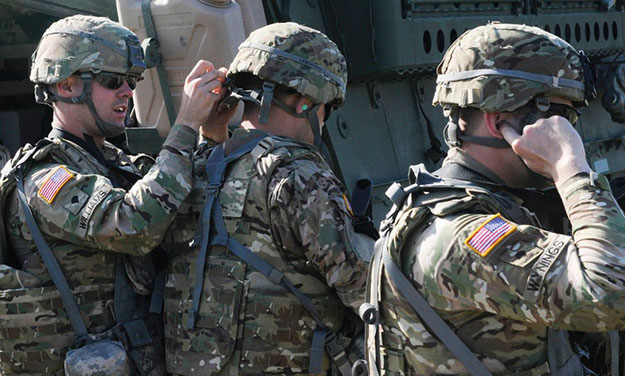AUSTIN, Texas - A lawsuit involving more than 229,000 veterans with hearing problems that they claim are linked to faulty earplugs issued by the military began its first trial March 29 in a Florida federal courtroom.
The multidistrict litigation claims the companies that made the earplugs - 3M and its predecessor Aearo - knew from testing that the equipment it designed in coordination with the military did not fit properly into an ear canal and could loosen in a way that was imperceptible to the wearer. The suit also claims some of the testing results shown to the military before the purchase were done with a modification to the earplug that the military was not told was required to achieve optimal protection.
Jury selection began Monday in Pensacola, Fla., for the cases of three veterans who were selected as "bellwether" trials in the U.S. District Court Northern District of Florida under Judge M. Casey Rogers.
Bellwether trials can be used in multidistrict litigation to present a representative of the cases before a jury to gain useful information for potentially reaching a settlement for all cases. It can help both parties determine the costs of subsequent litigation.
Two of the veterans in the bellwether trials have hearing loss and tinnitus, according to court documents. The third veteran suffers hearing loss and conditions related to it.
Hearing loss and tinnitus, described as a ringing or buzzing in the ears, are the two most common conditions of veterans who are suing, and are also two of the most prevalent service-connected disabilities identified by the Department of Veterans Affairs.
In 2017, the VA compensated about 1.79 million veterans for tinnitus and about 1.16 million for hearing loss, according to the Hearing Health Foundation, a nonprofit funder of hearing research in America.
The lawsuit focuses on 3M's combat arms earplug, version 2. Work began on the product in the late 1990s, when the military tasked the St. Paul, Minn.-based company to design an earplug that could block loud gunfire while allowing the wearer to hear low-level sounds, such as speech. The resulting product, a dual-sided earplug, was sold to the military until 2015.
No recall was ever issued on the product and version 4 of the earplug remains in use by the military, according to 3M.
"We deny this product was defectively or negligently designed and caused injuries, and we will vigorously defend ourselves against such allegations," the company said in a statement on its website.
In July 2018, the Justice Department announced 3M agreed to pay $9.1 million to resolve allegations that it knowingly sold the earplugs to the military without disclosing defects that hampered effectiveness. That lawsuit was filed through the whistleblower provision of the False Claims Act, according to the Justice Department.
In settling the claim, 3M did not admit to wrongdoing, according to the company.
Following that decision, a series of lawsuits were filed by veterans who wore the earplugs and now suffer from hearing loss. Those claims were combined into the multi-district mass tort case now churning through the legal system. In a mass tort case, each plaintiff is treated as an individual instead of as a group, such as in a class action lawsuit.





Read Comments